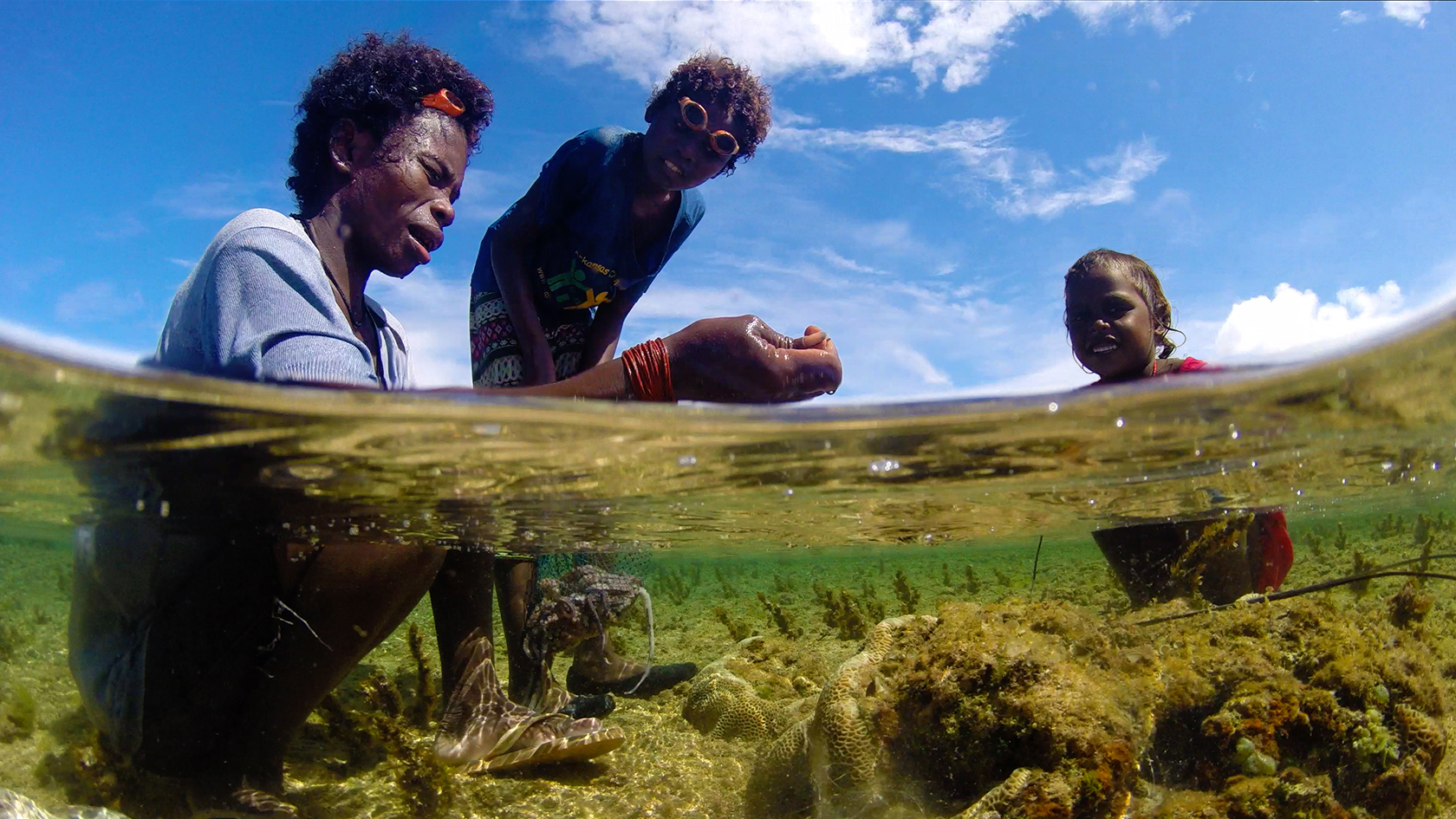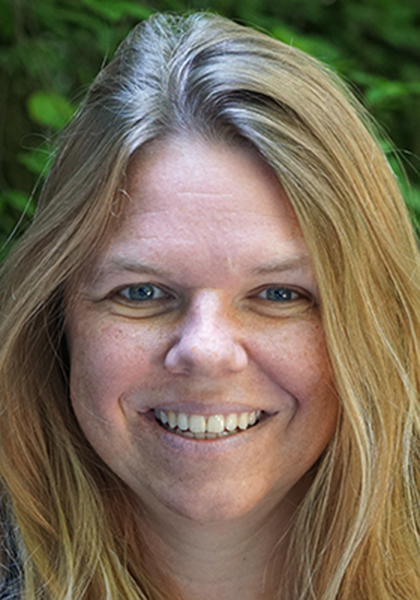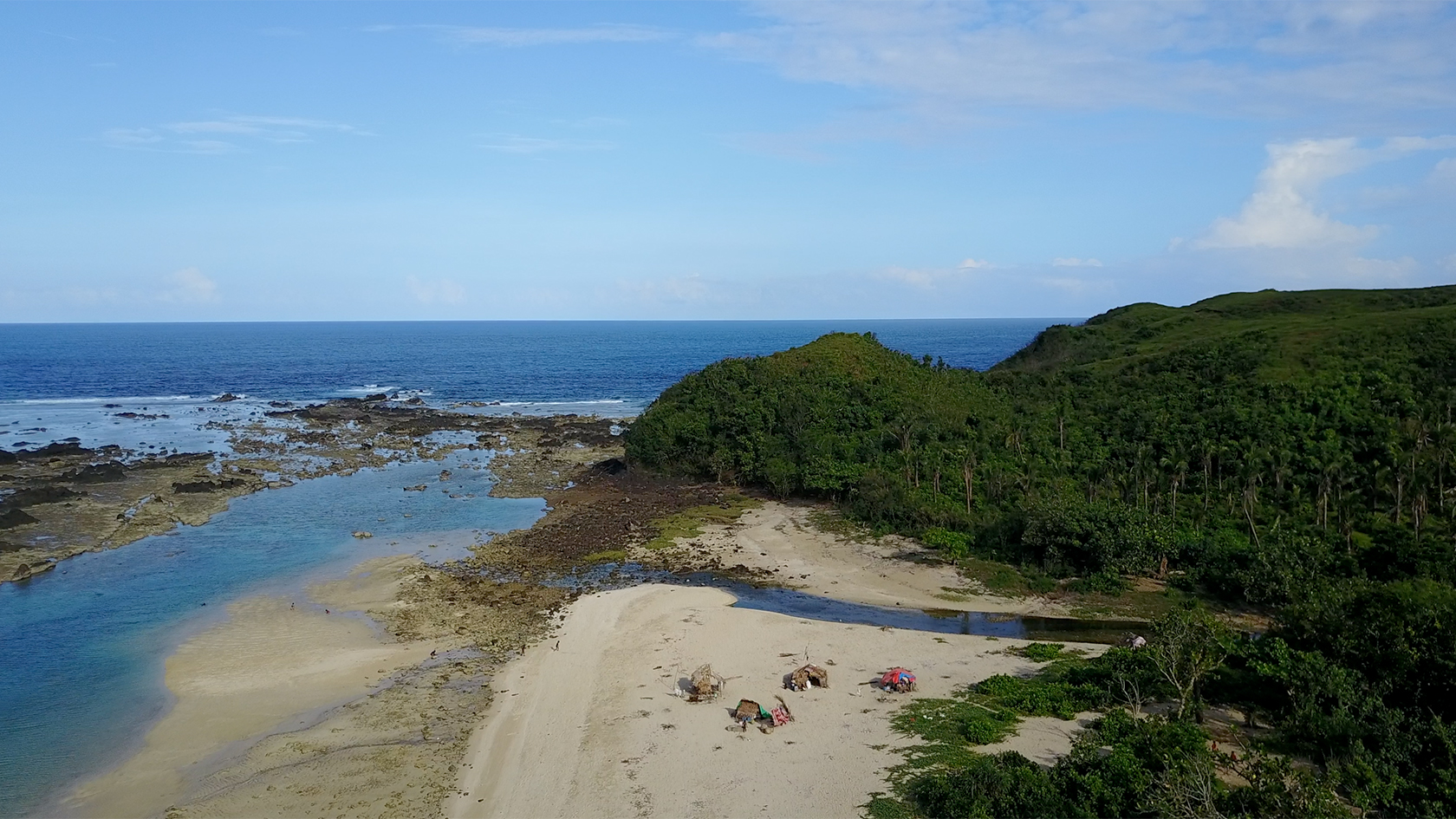Catching Squid Together

Cooperation has been part of humans’ recipe for success for at least 400,000 years. Our ancient ancestors – probably Homo erectus – effectively organized themselves in powerful groups to hunt wild animals together. These organized hunting expeditions were one of the cornerstones of the cooperative behavior that sets humans apart: “Without collective intelligence, humans wouldn’t have been able to forge ahead,” says Andrea Migliano, professor of evolutionary anthropology at UZH.
Thanks to their hunting experiences, early humans developed joint projects and distributed different roles to members of the group. Some were particularly good at reading tracks, some had a talent for making spears or clubs, and others were able to fearlessly rush at the mighty beasts. Together they improved their techniques with the aim of landing a large prey which would provide food for the group for several days. It’s easy to imagine how a successful kill and the celebratory carving up and cooking of the meat on the campfire would boost the group’s feeling of togetherness and encourage further cooperation.
Teaching lesson in octopus fishing
Remnants of the process that likely unfolded among these groups back in the mists of time can still be observed in the few hunter-gatherer societies that still exist today. One example is the Agta, an ethnic group in the Philippines living in remote forest areas close to the coast in the northeast of the island of Luzon. In the shallow waters around the shore, they fish for squid and other sea creatures in small groups according to traditional rules that have been passed down for thousands of years.
Andrea Migliano shows a video of the fishing process: one person, in this case an older woman, lures the creatures out of their hiding place with a stick while her oldest child kills an octopus in the water by hitting it with a stone. A younger child aged about seven watches carefully, getting a lesson in cooperative octopus fishing. “The children learn from a young age to cooperate in the daily search for food,” says the anthropologist, who has been working with this group and researching their way of life for around 10 years. For her, the hunter-gatherer groups that still exist today provide the best insights into how and why humans developed cooperative behavior in the past.
Raising children together
“Hunters and gatherers have egalitarian communities that are extraordinarily strong and collaborate beyond family units,” says Migliano. In the case of the Agta, a few hundred members live in scattered camps, each home to around 20 people, along the coast and near the forest. They fish and hunt, collect fruit and honey, and exchange their finds with each other, as well as doing some trade with other groups.
Men and women have equal status, even though the men mainly hunt and the women gather fruit and nuts. In each camp live several couples together with their children as well as more distant relatives and friends. These large-family communities are not set in stone, but are fluid and changeable – people change camps and live for a while in one and then in another, continually forming new networks.
One of the many questions for Andrea Migliano and her team is how this apparently ideal, egalitarian and cooperative network of relationships formed. It is clear that there are no straightforward answers, but that various factors come into play. One of the major factors, alongside hunting, is raising children, says Migliano. The time-consuming and labor-intensive nature of caring for babies and small children makes cooperation a necessity: “The costs of reproduction for humans are so high that both parents as well as other relatives and acquaintances need to be involved in raising offspring.”

Without collective intelligence, humans wouldn’t have been able to forge ahead.
With other primates such as chimpanzees or orangutans, such cooperation is not seen: fathers are not involved in their offspring’s care, which is left to the mothers. Migliano says that the need for cooperation in childrearing began when humans started walking upright. Their upright posture meant they couldn’t carry their children around for long periods of time like the knuckle-walking apes and were thus forced to pay more attention to the infants and look for communal solutions.
Creating something new together
Just a few years ago, scientists believed there was no distribution of labor in the egalitarian hunter-gatherer societies. But upon closer inspection, it has been found that they too have specialists, for example in hunting big game, collecting honey or producing tools, as well as shamans, storytellers, singers, masters of ceremony, dancers and many more. These pros form a mutually complementary and cooperative network in the service of the society. Early on in our history, we humans apparently learned that specialization paired with cooperation pays dividends.
“Even back then it wasn’t possible for one person to know everything,” says Migliano. Modern academia is organized the same way, with researchers being specialists in their own field, she points out. As an anthropologist, she relies on being able to work with experts from other disciplines such as psychology, genetics or zoology. “We combine our knowledge and use it to create something new, just like our ancestors did,” says the anthropologist.

The majority of other primates do not divide up labor in this way. Present-day hunter-gatherer societies therefore provide an interesting window into how humans may have begun to develop into specialists. Research has shown that thanks to their well-functioning and flexible networks, people in hunter-gatherer societies would inevitably share specialized knowledge with each other.
Probably since the earliest times, these communities have passed on their cultural achievements, their ideas and their knowledge to subsequent generations – anthropologists talk about the beginning of “cumulative culture”. Instead of knowledge being lost, as is the case in more fragmented societies, it is transmitted and forms the foundations of a cultural memory.
Progressively more complex tools are invented – from a simple cutting tool, the next generation develops an ax – and medicinal plant lore increases from generation to generation. Production of specialized everyday objects enables trade across larger networks and distances, leading to more cultural exchanges. “In these communities we see the same cultural development mechanisms as those which led to the development of our modern high-tech societies over the course of thousands of years,” says Migliano.
Egalitarian communes
The hunter-gatherer societies also allow intriguing conclusions to be drawn about gender equality. Namely, the unusual structure of the camps in which couples live with their children and relatives as well as with friends and acquaintances is thought to be a consequence of the men and women having an equal say. “Close friendships are very important in these communities,” says Migliano. From their research with the camp inhabitants, Migliano and her team were able to show that these “communes” are the direct result of the partners’ equal status, as the decision about who should live with them is made together.
“Gender equality is an important adaptation of these communities,” says Andrea Migliano. In the Agta camps, around half the inhabitants are friends and distant relatives. “In patriarchal or matriarchal societies, the proportion of close relatives would be higher,” says the anthropologist. Thus, in an equal society the proportion of self-chosen friends and the efficiency of cooperative networks increases. In other words, equality and friendship are two reasons for the evolutionary success of our species.
A kind of counterpoint to the egalitarian arrangement of hunter-gatherers can be seen in the settled agrarian societies which began planting crops and breeding animals around 12,000 years ago. A lot of the characteristics of the highly cooperative hunter-gatherer societies changed with this step: people no longer lived from hand to mouth but stored provisions longer term. They also began to claim portions of land and to draw boundaries. Cooperative behavior didn’t disappear altogether (otherwise the iconic buildings of later centuries could never have been built), but a different mode of operation barely seen in the Agta took precedence – competition.
This text is part of the dossier on teamwork from UZH Magazine 2/2023.